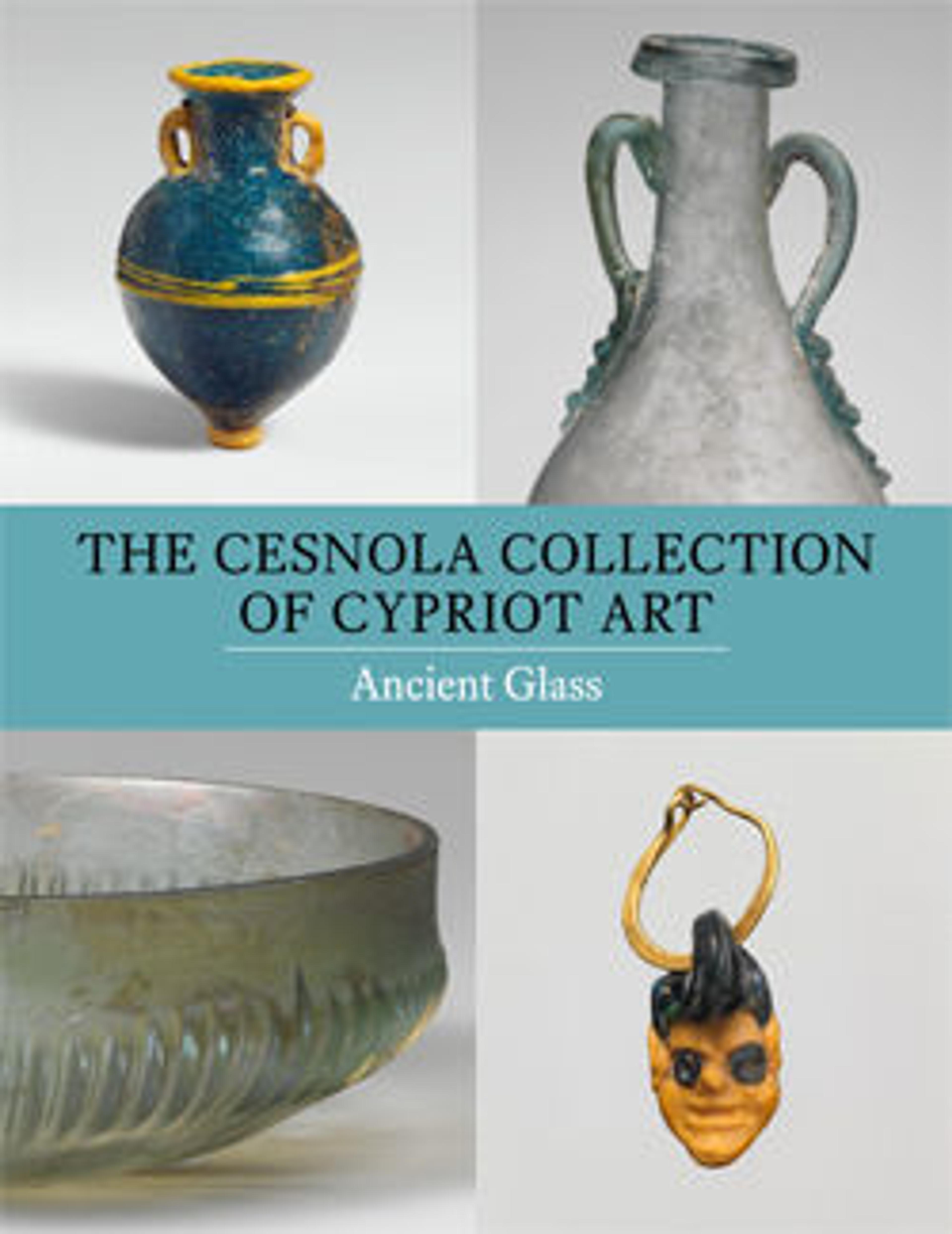Glass trick bottle or cup
Translucent deep olive green, appearing opaque black.
Rim folded down, over, and in, forming slight inner lip; broad, uneven mouth; cylindrical neck expanding downwards to join squat bulbous body; bottom deeply push in to form hemispherical concavity. Stands aslant.
Intact; pinprick bubbles; some pitting and iridescence, with one area of dulling where thick enamel-like brown weathering has flaked off.
Essentially a perfume bottle with a deeply pressed in bottom. When inverted it appears as a 'double-walled' cup, hence this type of vessel has previously been described as an 'egg cup.'
Rim folded down, over, and in, forming slight inner lip; broad, uneven mouth; cylindrical neck expanding downwards to join squat bulbous body; bottom deeply push in to form hemispherical concavity. Stands aslant.
Intact; pinprick bubbles; some pitting and iridescence, with one area of dulling where thick enamel-like brown weathering has flaked off.
Essentially a perfume bottle with a deeply pressed in bottom. When inverted it appears as a 'double-walled' cup, hence this type of vessel has previously been described as an 'egg cup.'
Artwork Details
- Title: Glass trick bottle or cup
- Period: Imperial
- Date: 2nd–4th century CE
- Culture: Roman
- Medium: Glass; blown
- Dimensions: 1 7/8 in. (4.8 cm)
Other: 1 7/8 in. (4.8 cm)
Diam. of foot: 1 11/16 in. (4.3 cm) - Classification: Glass
- Credit Line: The Cesnola Collection, Purchased by subscription, 1874–76
- Object Number: 74.51.150
- Curatorial Department: Greek and Roman Art
More Artwork
Research Resources
The Met provides unparalleled resources for research and welcomes an international community of students and scholars. The Met's Open Access API is where creators and researchers can connect to the The Met collection. Open Access data and public domain images are available for unrestricted commercial and noncommercial use without permission or fee.
To request images under copyright and other restrictions, please use this Image Request form.
Feedback
We continue to research and examine historical and cultural context for objects in The Met collection. If you have comments or questions about this object record, please contact us using the form below. The Museum looks forward to receiving your comments.
